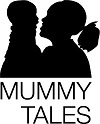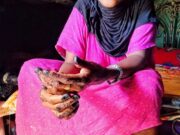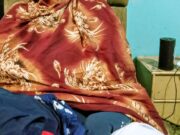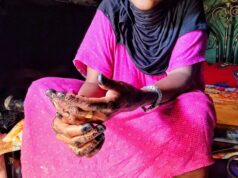What happens when a young woman seeking family planning services settles on her preferred method, but the service provider disagrees with her choice? Is she compelled to go with the service provider’s recommendation? Does the service provider give her sufficient information about why she shouldn’t use her preferred method? Does she leave the clinic feeling satisfied about the service offered? Do service providers understand the dynamics around the contraceptive choices of their clients?
This is the story of *Fawzia, a young married Somali refugee woman in Nairobi, Kenya, whose experience sheds more light on the interaction between service providers and young family planning clients.
By Maryanne W. Waweru l wawerumw@gmail.com l @MaryanneWaweru
When 22-year-old Fawzia’s son was two months old, she and her husband were undergoing serious marital problems; their future together uncertain. One thing she was however sure of is that she did not want to get pregnant with her second child soon –until she had clear direction about her troubled marriage.
To avoid getting pregnant again, Fawzia went to the family planning clinic at a public health facility near her home in Kamukunji, where she requested for the five-year implant. Her friends had told her about different contraceptive methods and she had settled on the implant. She believed it was the surest way to prevent an unplanned pregnancy.
Denied family planning method of choice
However, things didn’t go as expected at the family planning clinic.
“The nurse told me that I was too young to get the implant, saying that it was mostly given to older women who had already bore enough children. At that time, I was 20 years old with only one child. She said it would not be good for me to have a long-term hormonal contraceptive at my age. The nurse advised me to take the daily pill instead. She wrote me the prescription and directed me to the pharmacy where I would get the pills.”
But Fawzia did not go to the pharmacy. She went home instead, disappointed.
Threw away the prescription
“Even as the nurse was writing the prescription for the pills, I knew she was wasting her time as I was not going to take them. This is because my friends who had used the pill before had told me how after they started taking the pill, their breastmilk had dried up. At that time, my son was only two months old, and I didn’t want the same thing to happen to me. Once outside the gate of the health facility, I threw the prescription away as not only was it unhelpful, but I didn’t want my husband to know that I had been to the clinic.”
Breastfeeding to prevent pregnancy
Having been denied her choice of family planning method at the clinic, Fawzia opted to diligently breastfeed her son to avoid getting pregnant. She would nurse him every three hours without fail. Traditionally, Somali women are encouraged to use breastfeeding as a means of contraception, though it is not always reliable.
Fawzia and her husband have since separated. She is however hopeful about getting married again and having more children.
Also read other stories from Somali women refugees and their personal experiences with family planning:
Secrets in marriage: I use family planning but my husband doesn’t know
Why I decided not to give birth again after delivering my 10th child
The story of Sadiya and Mama Kevo of 7th Street
Fawzia is among the three in four urban married Somali refugee women in Nairobi who do not use any modern family planning method. This is according to a recent study undertaken by Dr. Eliphas Gitonga Makunyi, a population and sexual reproductive health expert and lecturer at Kenyatta University.
Dr. Gitonga’s study sought to examine the utilization of family planning among blended married Somali refugee women aged 15-39 years in Nairobi County. The study area was specifically Kamukunji, Embakasi, and Ruaraka sub-counties, where the highest portion of the Somali community lives. The blend included Somali women from neighbouring countries (refugees) and natives from Nairobi and the northern region of Kenya. This is the first detailed study specifically focusing on Somali refugees (who make up the highest percentage of the refugee population in Kenya and in Nairobi County).
The study established that the level of utilization of modern family planning among married Somali refugee women was 24%. This, compared to 43.5% among native Somali women. Among the users, injectable, pills and implants are the main methods and are sourced from public facilities. This utilization is much lower than the national average, which is 53%, and the Nairobi County average which is 58%.
Patriarchy in the Somali community
According to Dr. Gitonga, this could be associated with the population of study who are refugees and face multiple challenges in accessing family planning. Being of Somali origin is also a key factor because of cultural and religious beliefs and norms that discourage women from using family planning.
The Somali community is a patriarchal system, where most decisions are made by men. According to the study, the husband’s or partner’s disapproval of family planning reduced the likelihood of utilization. The study established that constructive male engagement in family planning increased the likelihood of utilization among Somali refugee women. The study also showed that a belief that a woman’s community culture is unsupportive of family planning reduced the likelihood of utilization.
Male involvement in family planning
Some of the study’s key recommendations is for family planning programs to take religion and culture into account to reach urban Somali women. It also recommends the need to increase male engagement in reproductive health programs targeting refugees in Nairobi. The study also urges Policymakers at county and national levels to formulate urban refugee targeted family planning policies.
Learn more about the study here.
Do you have feedback on this article? Comment down below or email me at wawerumw@gmail.com
*Name changed to protect her identity.
 Mummy Tales is a platform dedicated to empowering its readers on different aspects of womanhood and motherhood. Read more motherhood experiences of Kenyan moms here. Connect with Mummy Tales on: FACEBOOK l YOU TUBE l INSTAGRAM l TWITTER
Mummy Tales is a platform dedicated to empowering its readers on different aspects of womanhood and motherhood. Read more motherhood experiences of Kenyan moms here. Connect with Mummy Tales on: FACEBOOK l YOU TUBE l INSTAGRAM l TWITTER







































